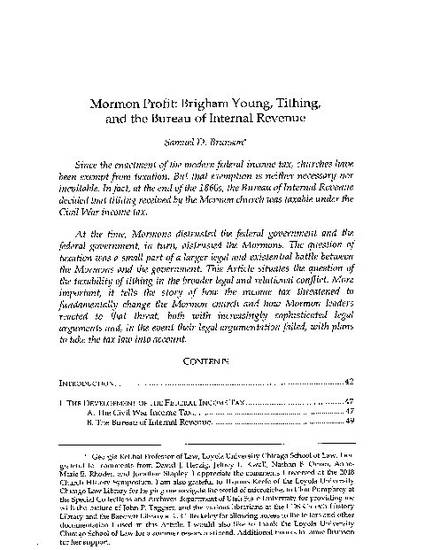
Since the enactment of the modern federal income tax, churches have been exempt from taxation. But that exemption is neither necessary nor inevitable. In fact, at the end of the 1860s, the Bureau of Internal Revenue decided that tithing received by the Mormon church was taxable under the Civil War income tax. At the time, Mormons distrusted the federal government and the federal government, in turn, distrusted the Mormons. The question of taxation was a small part of a larger legal and existential battle between the Mormons and the government. This Article situates the question of the taxability of tithing in the broader legal and relational conflict. More important, it tells the story of how the income tax threatened to fundamentally change the Mormon church and how Mormon leaders reacted to that threat, both with increasingly sophisticated legal arguments and, in the event their legal argumentation failed, with plans to take the tax law into account.
